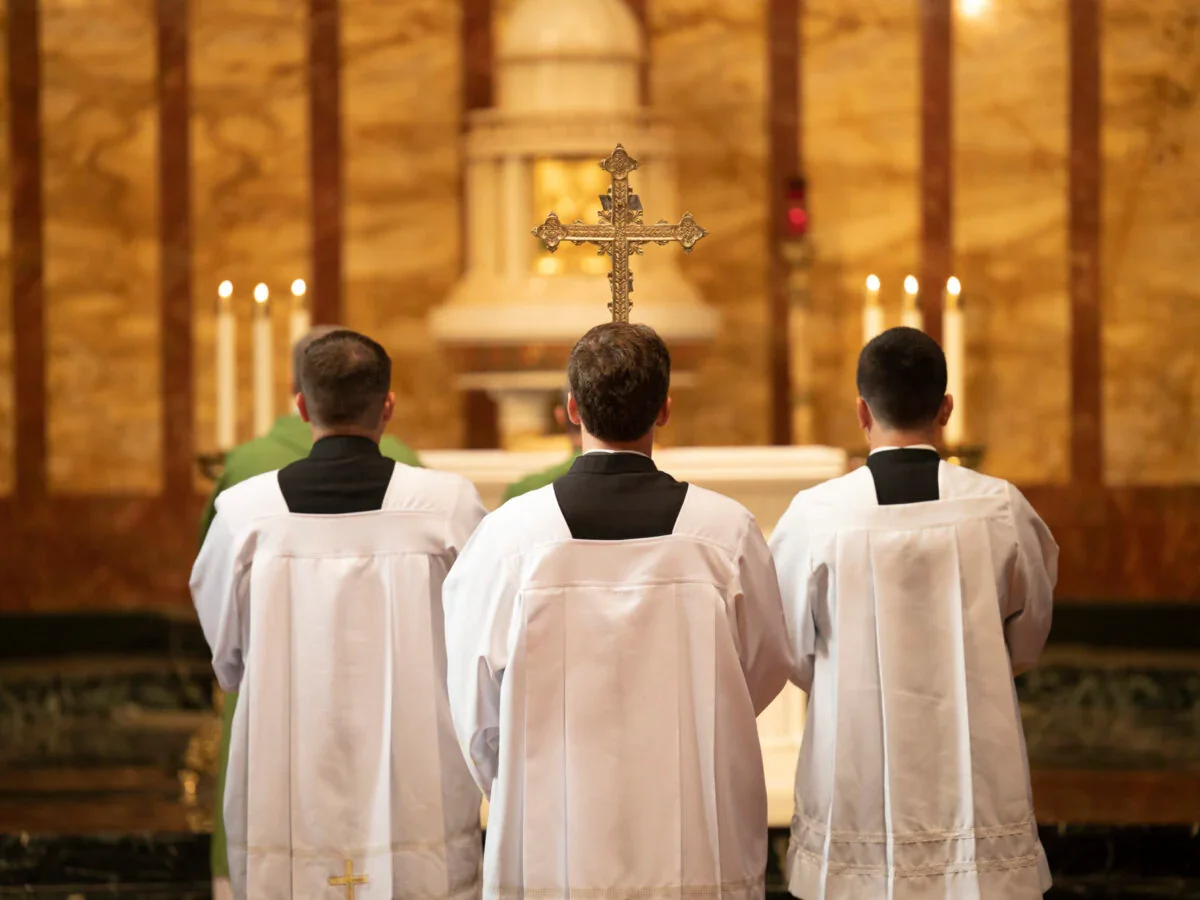When I was a college student at the University of Mississippi, the word vocation came with a lot of baggage. I remember clearly when a local pastor invited my best friend and me to a luncheon in Jackson. “There’s a free meal!” he promised—and that got our attention. But then came the catch: it was a luncheon about vocations.
Cue the red flags.
It wasn’t that I was against the idea of the priesthood. I was grateful, even humbled, that someone thought I might be called to it. But too often, “vocation” felt like a trap—an overly eager response to the declining number of priests in the Church. Instead of feeling invited, I felt recruited. Vocation, to me, became synonymous with black collars, solitude, and a calling I didn’t feel equipped or ready to claim.
But I’ve come to realize: the problem wasn’t the call. The problem was how we talked about it.
We’ve Misused the Word
Somewhere along the way, the word vocation got boxed in—reduced to a job description rather than a spiritual identity. Like the word love, it’s been stretched, misused, and misunderstood.
But theologian James Fowler offers a much broader, life-giving view. He writes:
“Vocation is the response a person makes with his or her total self to the address of God and to the calling to partnership.”
This definition opened something up in me. It helped me see vocation not as a job, but as a lifestyle—a way of being in relationship with God, with others, and with my own purpose.
Let’s break it down.
Vocation is a Response
You can’t respond to a voice you don’t hear. And in our noisy, fast-paced culture, the voice of God is often drowned out by urgency and speed. We’re bombarded with signs like “NOW,” “URGENT,” and “DON’T WAIT”—but how often do we see signs that say stop, slow down, or listen?
God is present in the here and now, but God will not compete with our busyness. To respond, we must first be still. One tool I use is a simple breathing prayer adapted from Wilkie Au’s By Way of the Heart—breathing in God’s goodness, breathing out anxiety and distraction. This practice helps me quiet the noise and tune in to the still, small voice that calls me.
Vocation is a Calling to Partnership
God’s call is not just about what we do, but about who we are in relationship—with God and with each other. Fowler writes:
“God’s calling us into being constitutes each of us in our uniqueness and in our special purposes for living.”
That means your existence isn’t an accident. You were created with intention, placed in this time and place, for a mission. For me, that calling led to youth ministry. And even though I initially resisted—foot stomping and all—God had a bigger plan. What I saw as a detour (Baton Rouge instead of North Carolina) turned out to be one of the greatest blessings of my life.
God’s call often shows up in unexpected ways, and following it rarely looks like a straight line. But when we trust the invitation and say yes—even reluctantly—we discover meaning we never imagined.
Vocation is a Total-Self Commitment
We’re not called to a 50/50 split with God. True vocation is about putting our whole selves—our time, energy, relationships, talents, and even our leisure—at the service of God’s purposes.
“It means orchestrating our leisure, our relationships, our work, our private life, our public life, and the resources we steward... in service of God and the neighbor.” —Fowler
This doesn’t mean being perfect. It means being intentional. It means developing a kind of “God-filter”—a spiritual instinct that shapes our decisions, conversations, and values. It’s not about turning our faith on and off like a switch. It’s about letting our faith saturate everything we do.
The Ministry of Presence
In my own journey, I’ve discovered that vocation is as much about being as it is about doing. When I first began in youth ministry, I thought I had to entertain—to play guitar, tell stories, offer wisdom. But over time, I’ve realized that God often uses others to minister to me. And ministry, like vocation, is best lived out in partnership.
I’ve also learned that I can’t do this work alone. I’ve seen the fruit that comes from collaborating with others whose gifts complement mine. That’s vocation too—inviting others into the work, and trusting that the Kingdom is not built by solo efforts but by faithful community.
A Broader Vision of Vocation
Today, when I speak with young people about vocation, I start with this: vocation isn’t just about becoming a priest or a nun. It’s about learning to listen, to trust, and to respond fully—with your whole self—to the God who created you for a purpose.
And yes, for some, that may mean exploring a call to the priesthood or religious life. But for all of us, it means living our daily lives—our work, our relationships, our choices—in a way that builds up the Kingdom of God.
It’s not a title. It’s a way of life.
Final Thought:
If you’ve been afraid of the word vocation, you’re not alone. But maybe it’s time to reclaim it—not as a burden, but as a beautiful invitation.
Not to a career path.
Not to a role you’re pressured to accept.
But to a relationship with God that shapes your life, every day, from the inside out.
God is calling.
How will you respond?

